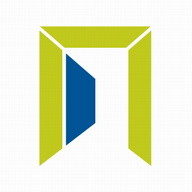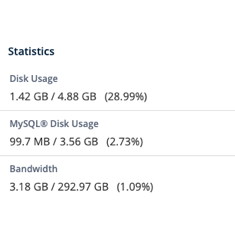Cheating on the rise in college
May 18th, 2006
CNET had an article about using technology like smartphones to cheat and having just completed an MBA degree I know there were several cheating scandals at the schools I attended. In some cases nothing was done when the students were reported by other students or even the faculty. Only in one notable case where a student went straight to the Dean with the evidence was much done.
In that class they used a competitive grading scheme so the team that came first got the most marks. Turns out the team that came first plagiarized their paper off the net…
Technology to Stop Cheating
Many years ago my fellow creative writing students were aghast I would put my one act play online. They figured it would just get plagerized. It probably has, the question is how many times and did anyone get caught? I put it online so people could read it and maybe perform it. Maybe systems like TurnItIn.com, which we used only during the Core portion of my MBA at Sauder, will help protect writing online.
Ethical Standards
I’ve since enrolled in the CFA® Program, I even passed all the exams, and obviously I never cheated but apparently cheating is also a big problem on standardized certification exams. The CFA Institute requires Candidates and Charterholders to adhere to a Code of Standards. Some business schools adopted this strategy but in 2019 it still seems like those that cheat do get ahead.
Sharing
One other thing that happened while I was at Sauder is the sharing of study notes. Some of my classmates were overly competitive. Unfortunately their competitiveness was often overshadowed by dishonesty. We were encouraged to form “reading groups” by our professors and these were suppose to be bunker like units where notes were swapped internally to reduce workloads. Unfortunately these were far from isolated islands of acedemia. Many people seemed to spend their time on MSN trying to weasel notes and answers out of other people rather than doing the actual work.
Attribution
Notably during our big Core final exam their was a disagreement between what Steve Keller, who had appointed himself accounting guru for our group, said and that of another group’s “accounting guru”. There was confusion, dismay, and I volunteered to redo all the accounting for the case to solve the issue. After I had it roughly finished I sent it to two students who were also good at accounting to look over and went for coffee. When I got back I received an email saying all my accounting problems were solved, attached to the email were my own notes. They had zoomed around our entire MBA class in an hour or so and weren’t even attributed to me.
Maximum Sharing
After this incident I seriously questioned sharing anything with anyone. In the end I tried to laugh it off and starting putting sentences like Muskie McKay wrote this in the middle of paragraphs as people are too lazy to take them out. I stopped giving out my notes, but eventually I decided the best way to beat the system wasn’t to play the same game and I made my notes available to the entire class. I did this because if I gave them to one person I knew damn well they would be distributed much further afield.
Lessons Learned
Of course no good deed goes unpunished. I’ve spent the last decade trying to recover from my MBA and my time as a CFA Candidate has been no picnic. I again made study notes available freely and again they were take without me getting credit for my hard work. I of course complained online but as the person who is unemployed and editing old blog posts, I wouldn’t say “cheaters never prosper”. If you have thoughts on cheating or academic dishonesty you can leave them below.
Operation Varsity Blues
I had just updated this over decade old post on academic dishonesty as part of my semi-regular attempts to improve the Quality of my blog when news broke of a massive academic cheating scandal uncovered by the FBI which ensnared Hollywood actors, business people, and may result in prison sentences and fines for 50 or more people. There is a local Vancouver even UBC connection as David Sidoo is among those charged. The FBI chose not charge any of the children but the universities they attended and in some cases graduated from may now be investigating and they have the ability to rescind the awarding of degrees.
Yale already decided to rescind the offer of admission to a student implicated in the scandal “based on language in the application that requires applicants to affirm that everything in the application is true and complete.”
Consider Matthew Martoma
An example of a university rescinding a degree after an investigation discovered academic dishonesty I learned about from the book “Black Edge”. As a result of an FBI investigation into insider trading, Matthew Martoma had to spend 9 years in jail and forfeit $9.38 million dollars in bonuses. He also lost his Stanford MBA degree as a result of information coming out that he neglected to mention he’d been expelled from Harvard Law.
I for one will not be shedding any tears for anyone who cheated on any exams or applications because I have never done either and I assure you cheaters do prosper. I’ve definitely never received any large cash bonuses and I got all my exam results the long, hard, old fashioned way. I’m also currently unemployed and lying on job applications is also far too common, up to 85% of the time. I don’t think President Trump is setting the best example of the importance of honesty either. If you have thoughts about this you can leave them below.
This entry was originaly posted on , it was last edited on and is filed under: Technology and tagged: David Sidoo, Matthew Martoma, MBA, Operation Varsity Blues, Sauder School of Business.





3 CommentsLeave A Comment Now